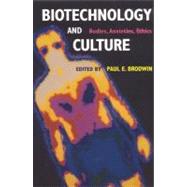
Note: Supplemental materials are not guaranteed with Rental or Used book purchases.
Purchase Benefits
What is included with this book?
Paul Brodwin is Associate Professor of Anthropology at the University of Wisconsin--Milwaukee and Adjunct Professor of Bioethics at the Medical College of Wisconsin. He is the author of Medicine and Morality in Haiti: The Contest for Healing Power and a co-editor of Pain as Human Experience: Anthropological Perspectives.
| Acknowledgments | vii | ||||
| Introduction | 1 | (26) | |||
|
|||||
| Part I: Genealogies | |||||
|
27 | (26) | |||
|
|||||
|
53 | (22) | |||
|
|||||
| Part II: Maternity in Question | |||||
|
75 | (24) | |||
|
|||||
|
99 | (22) | |||
|
|||||
|
121 | (26) | |||
|
|||||
|
147 | (26) | |||
|
|||||
| Part III: Ethics and the Technological Subject | |||||
|
173 | (20) | |||
|
|||||
|
193 | (16) | |||
|
|||||
|
209 | (15) | |||
|
|||||
|
224 | (17) | |||
|
|||||
| Part IV: Biotechnology and Globalization | |||||
|
241 | (23) | |||
|
|||||
|
264 | (21) | |||
|
|||||
| Contributors | 285 | (4) | |||
| Index | 289 |
The New copy of this book will include any supplemental materials advertised. Please check the title of the book to determine if it should include any access cards, study guides, lab manuals, CDs, etc.
The Used, Rental and eBook copies of this book are not guaranteed to include any supplemental materials. Typically, only the book itself is included. This is true even if the title states it includes any access cards, study guides, lab manuals, CDs, etc.